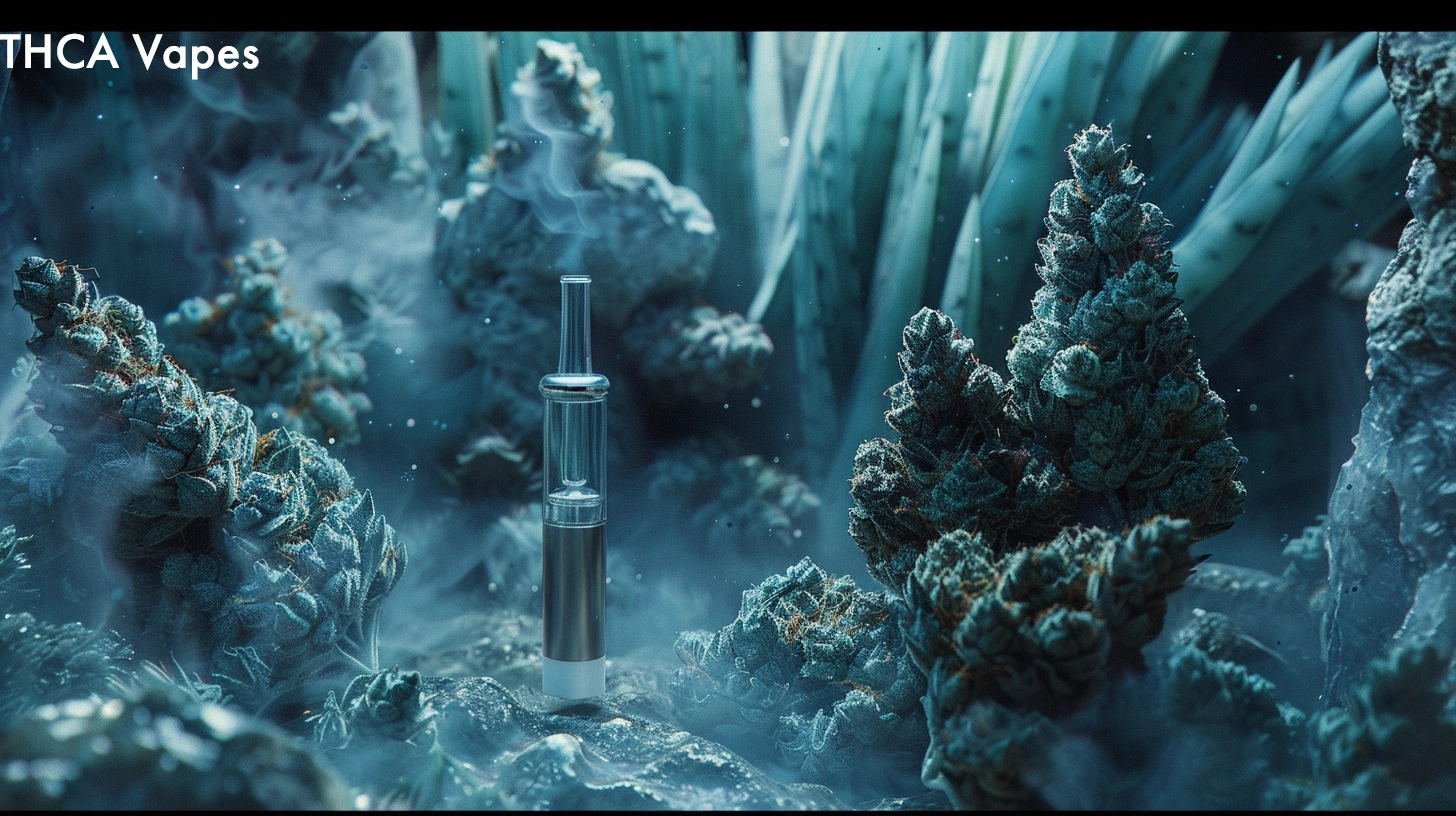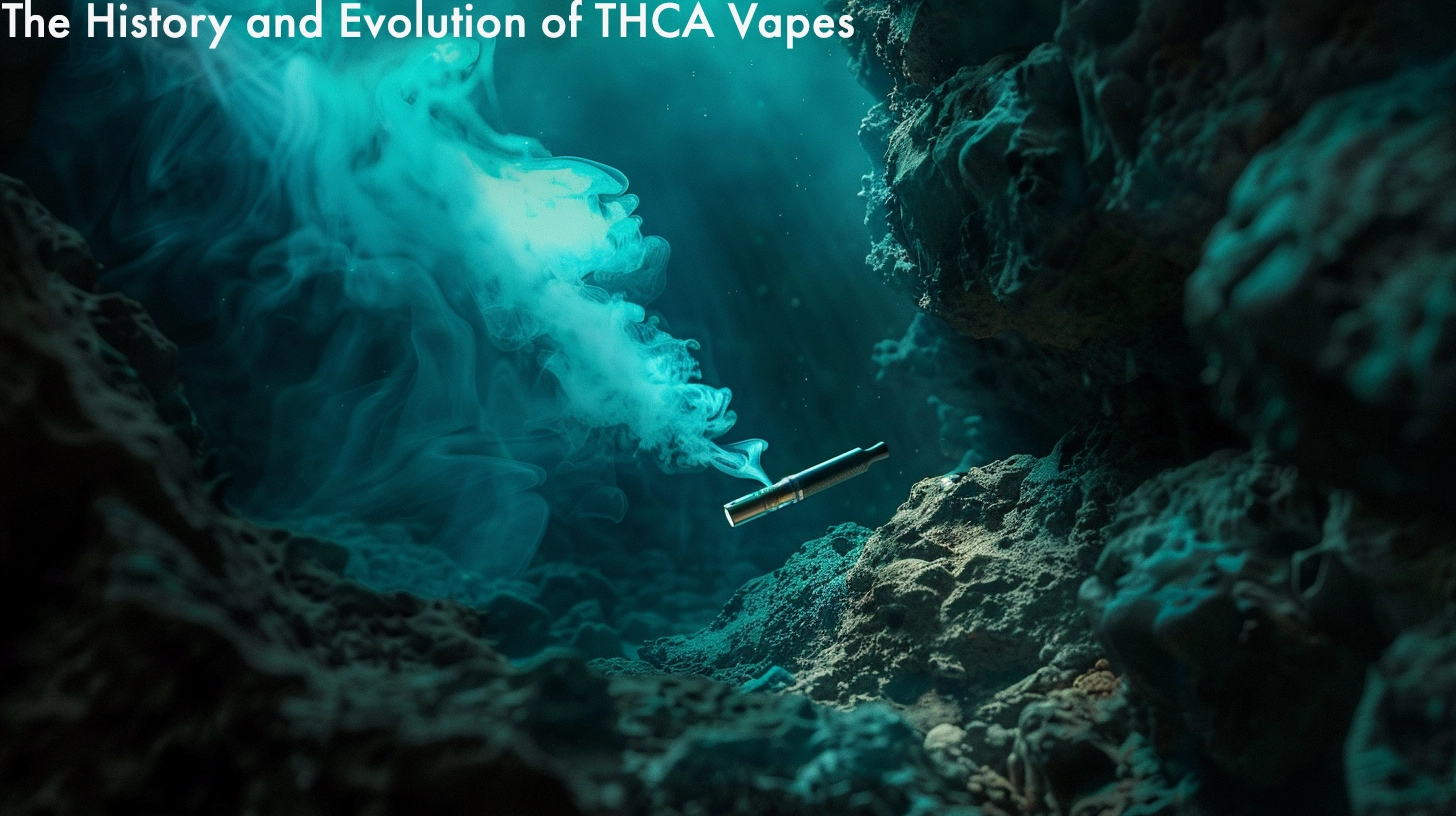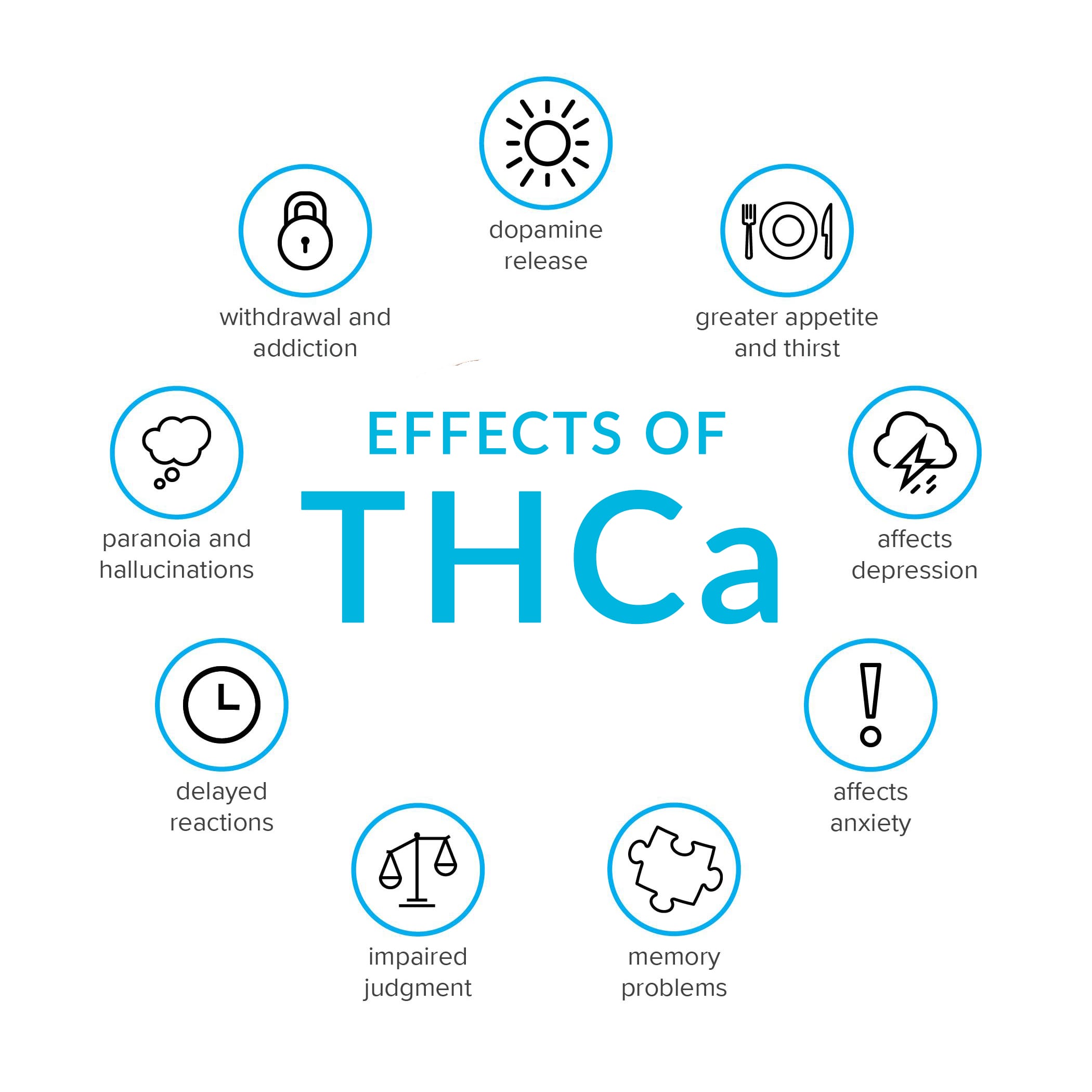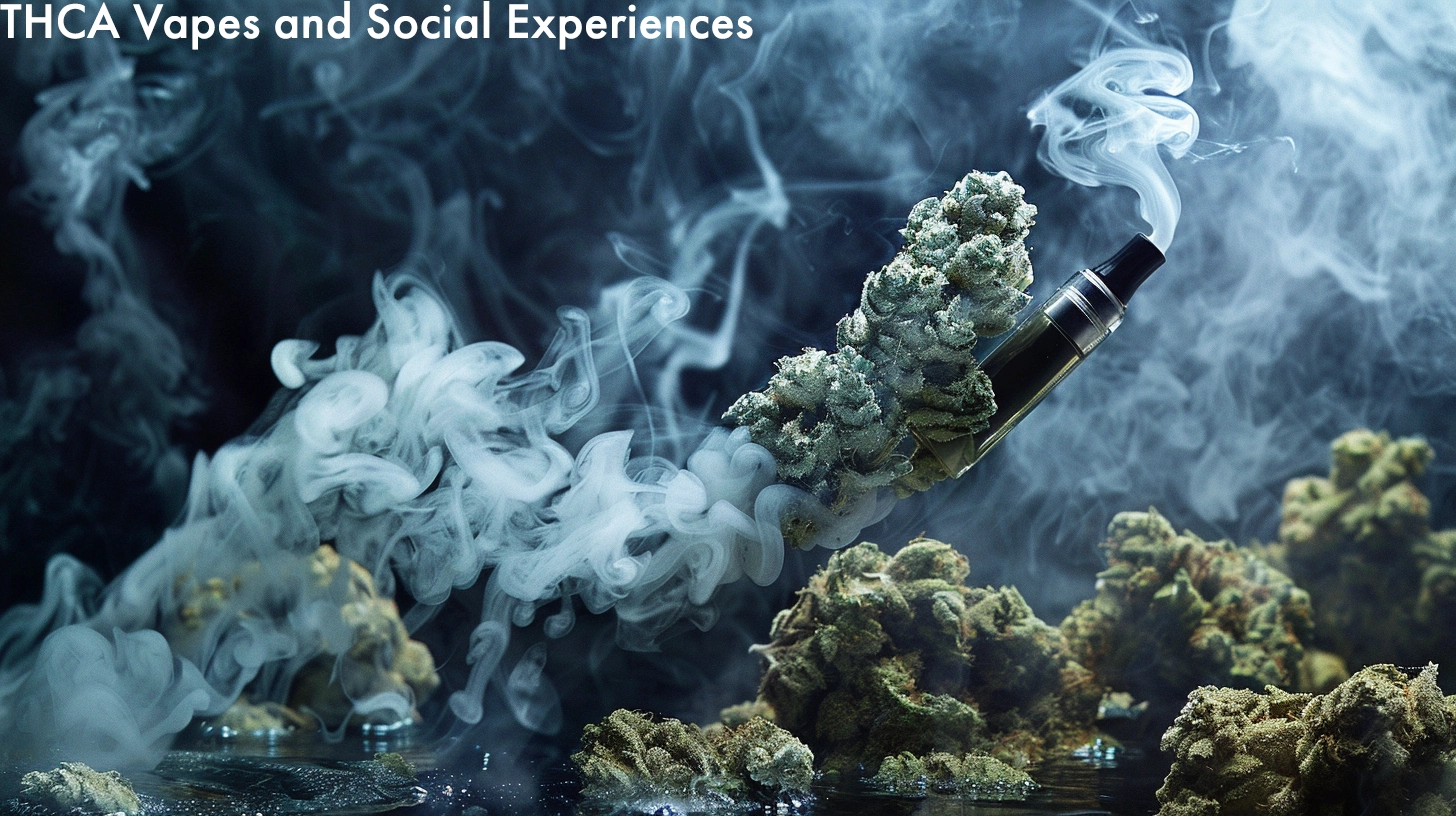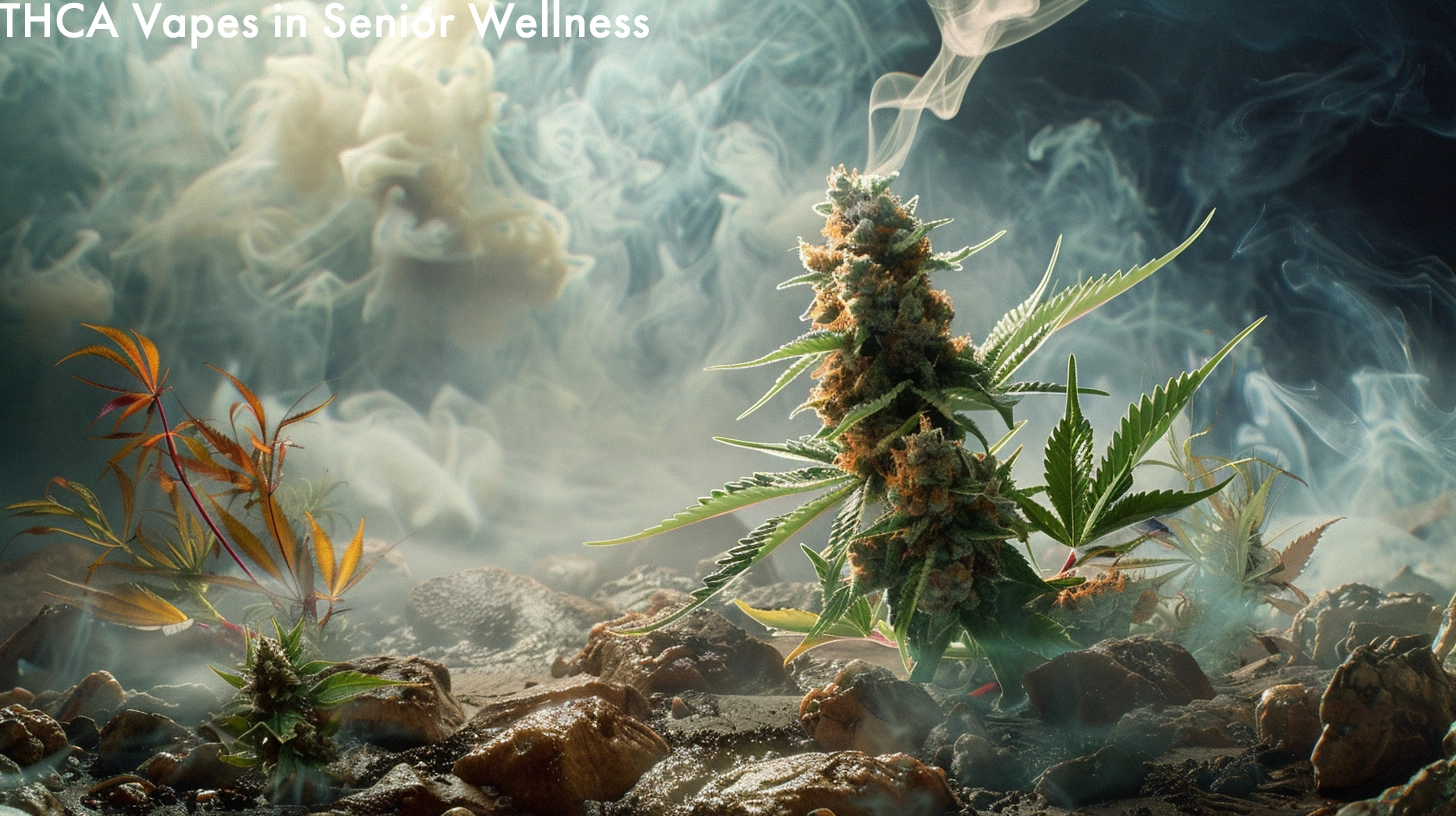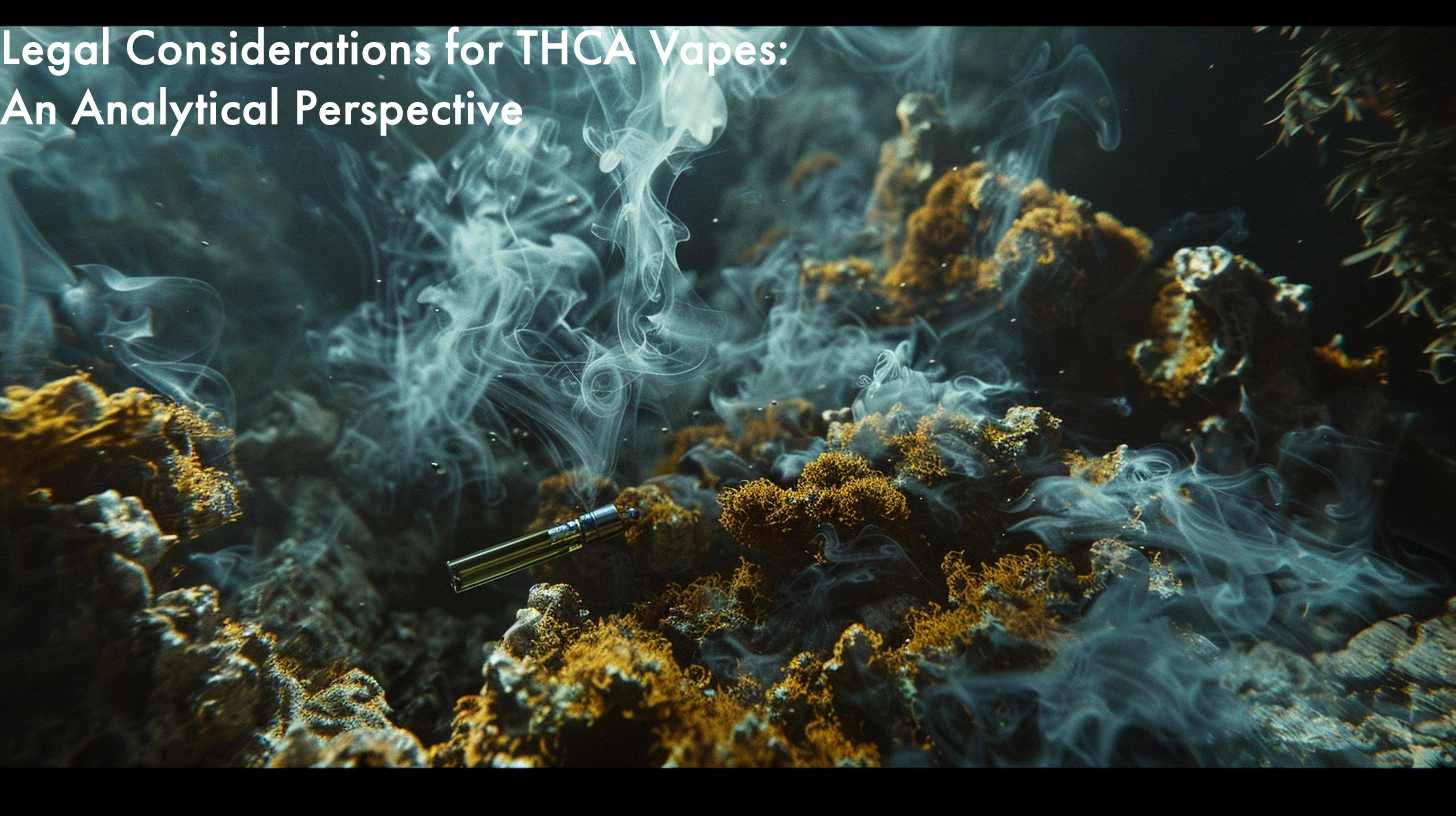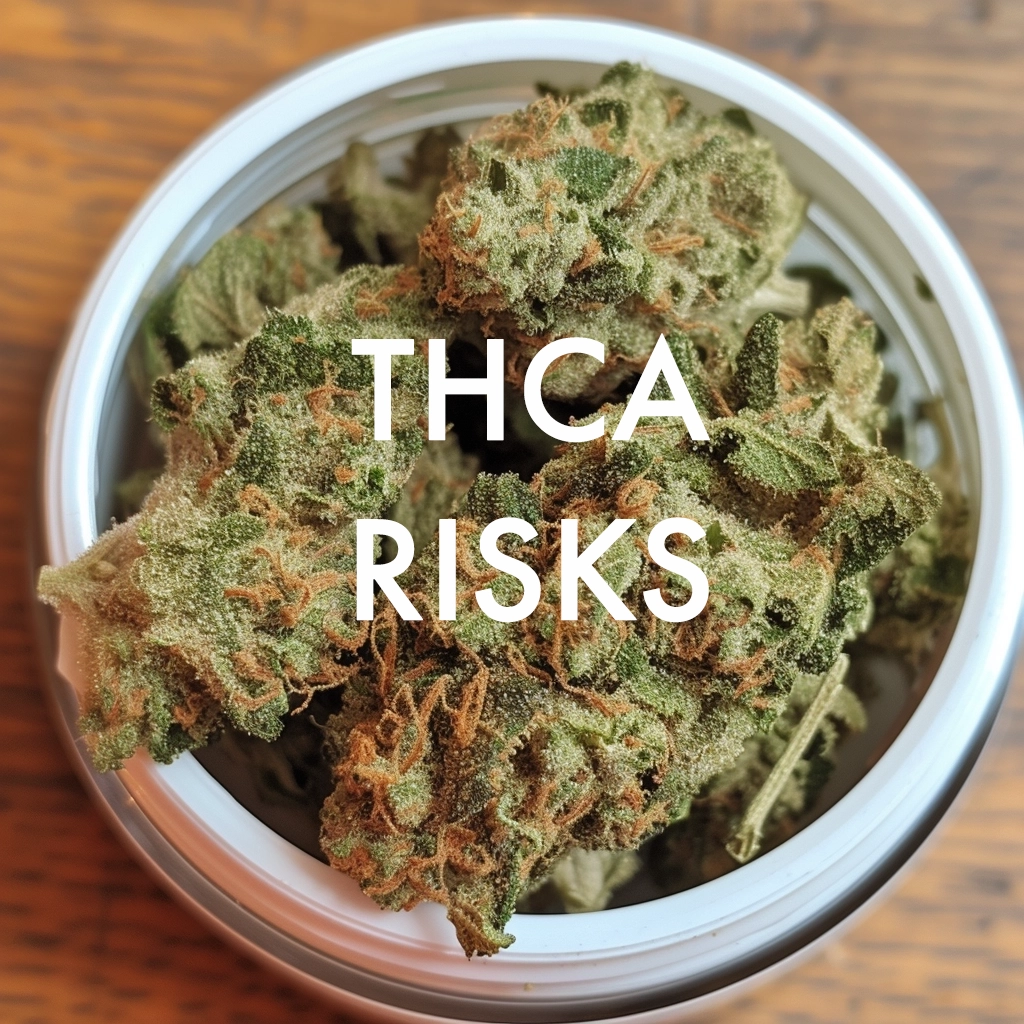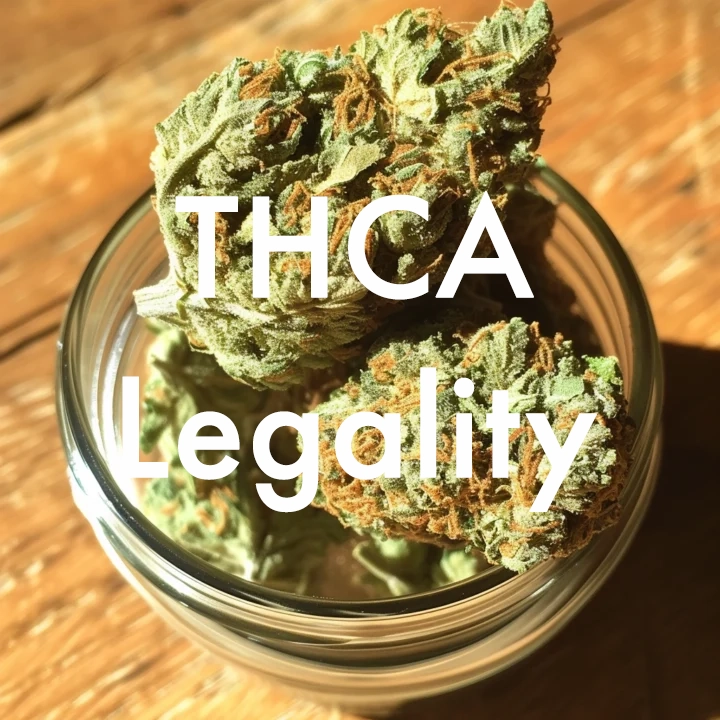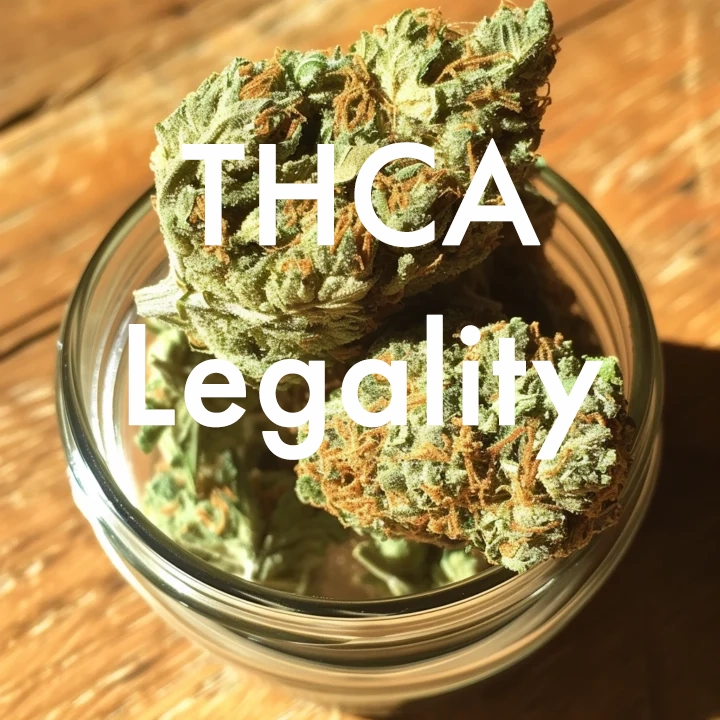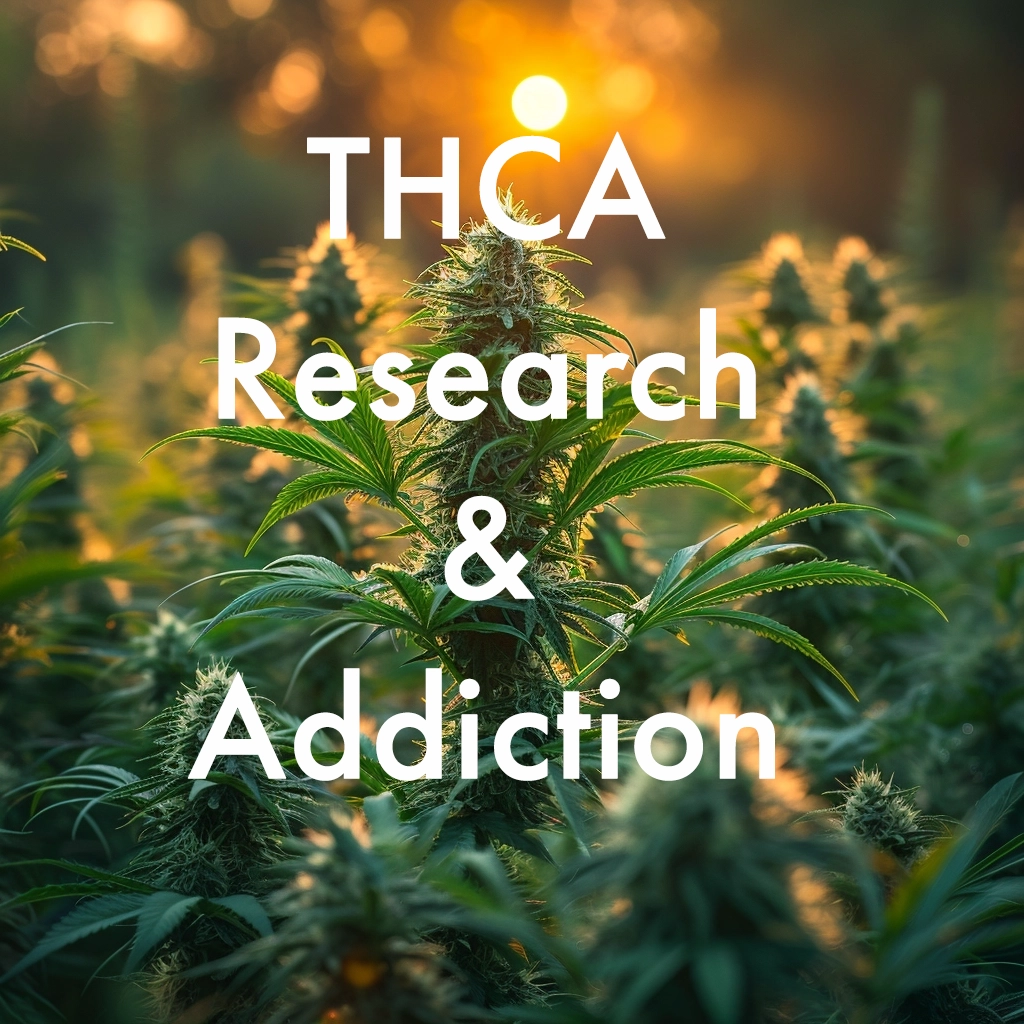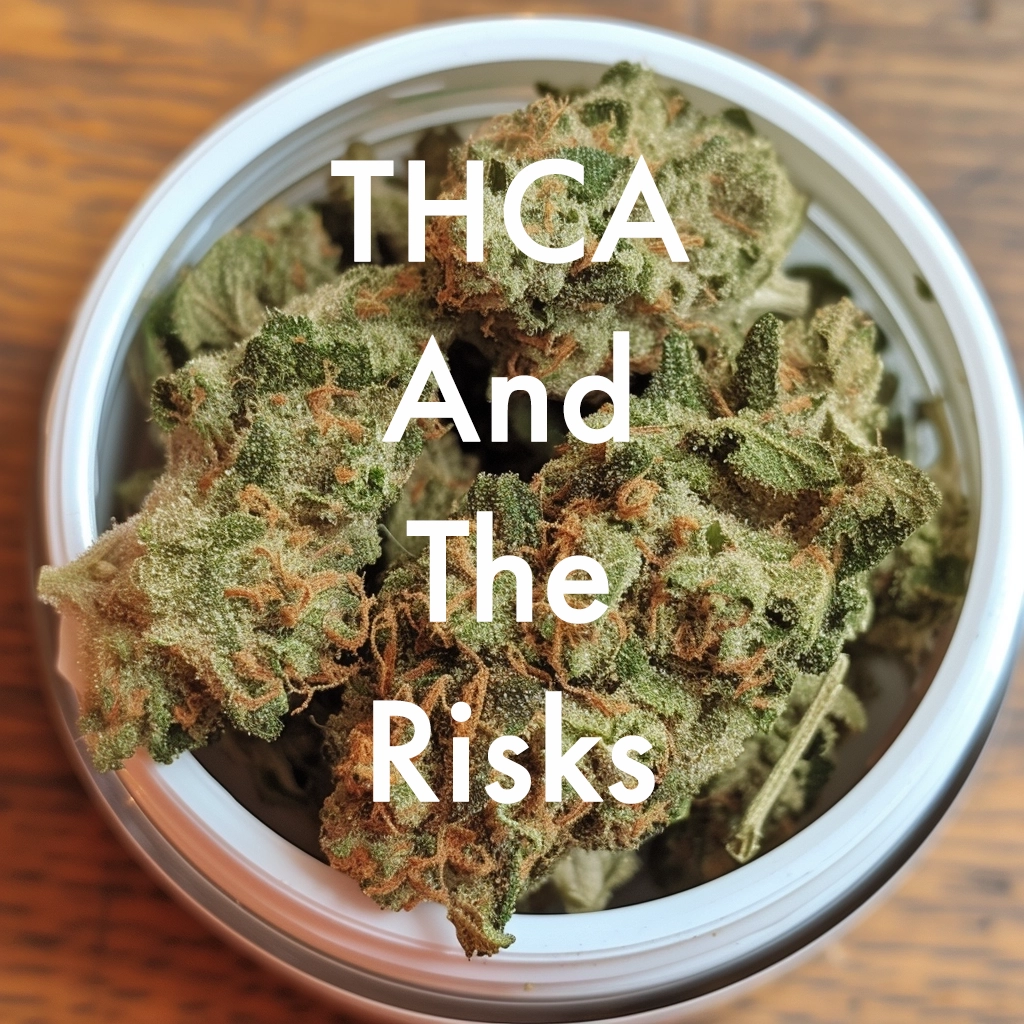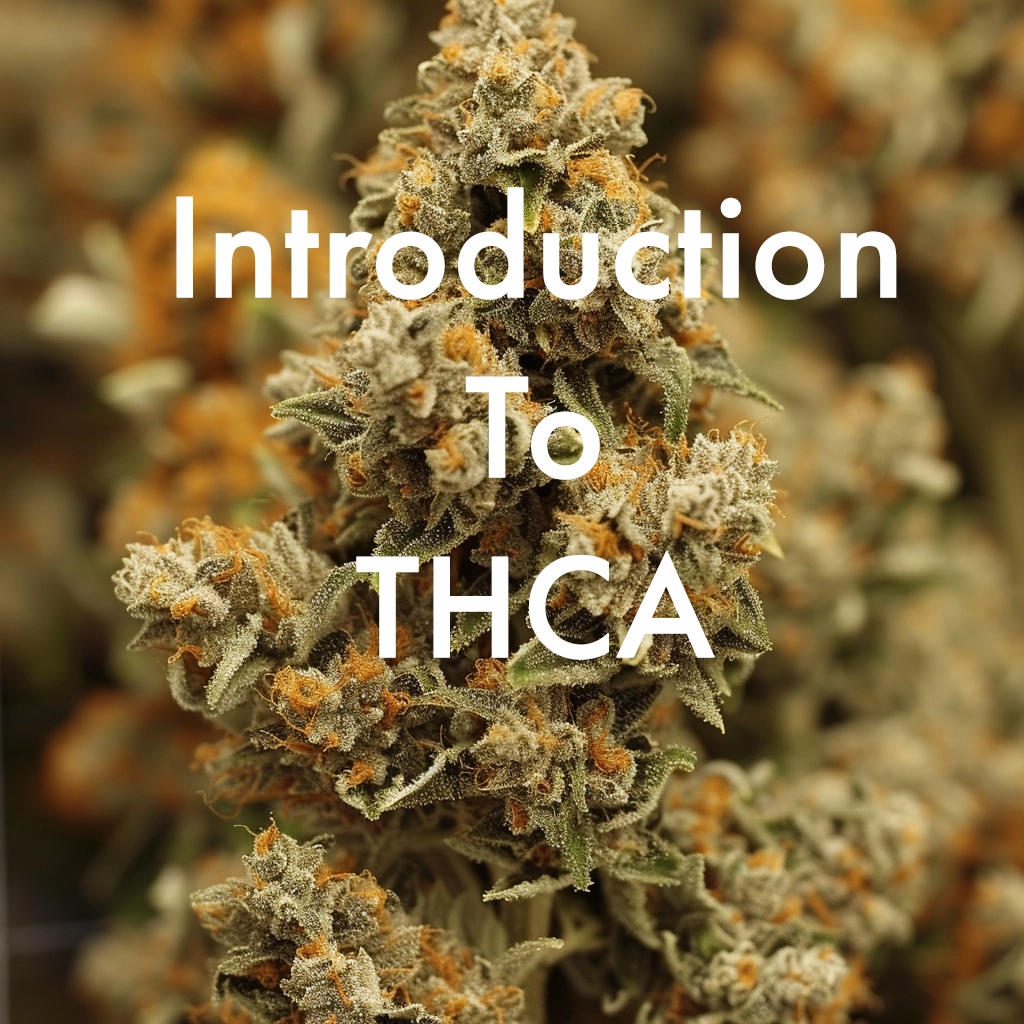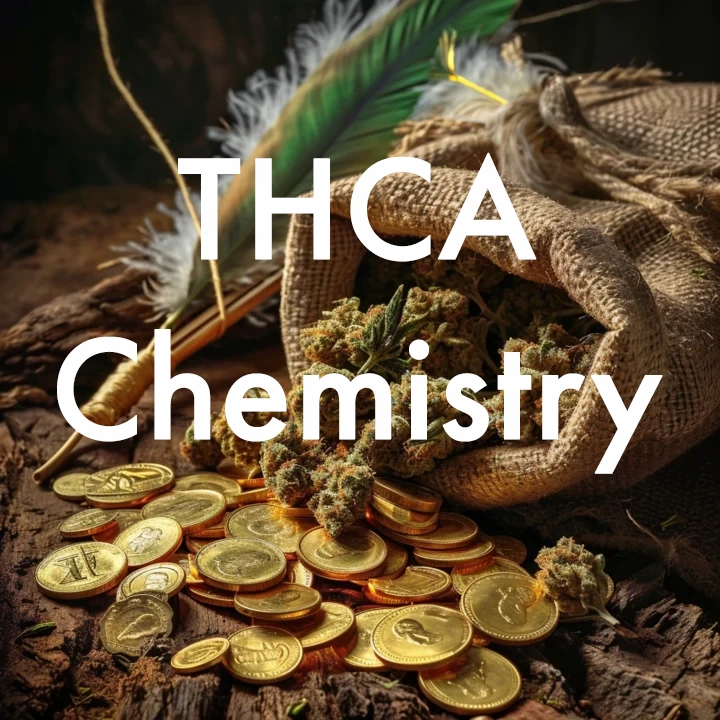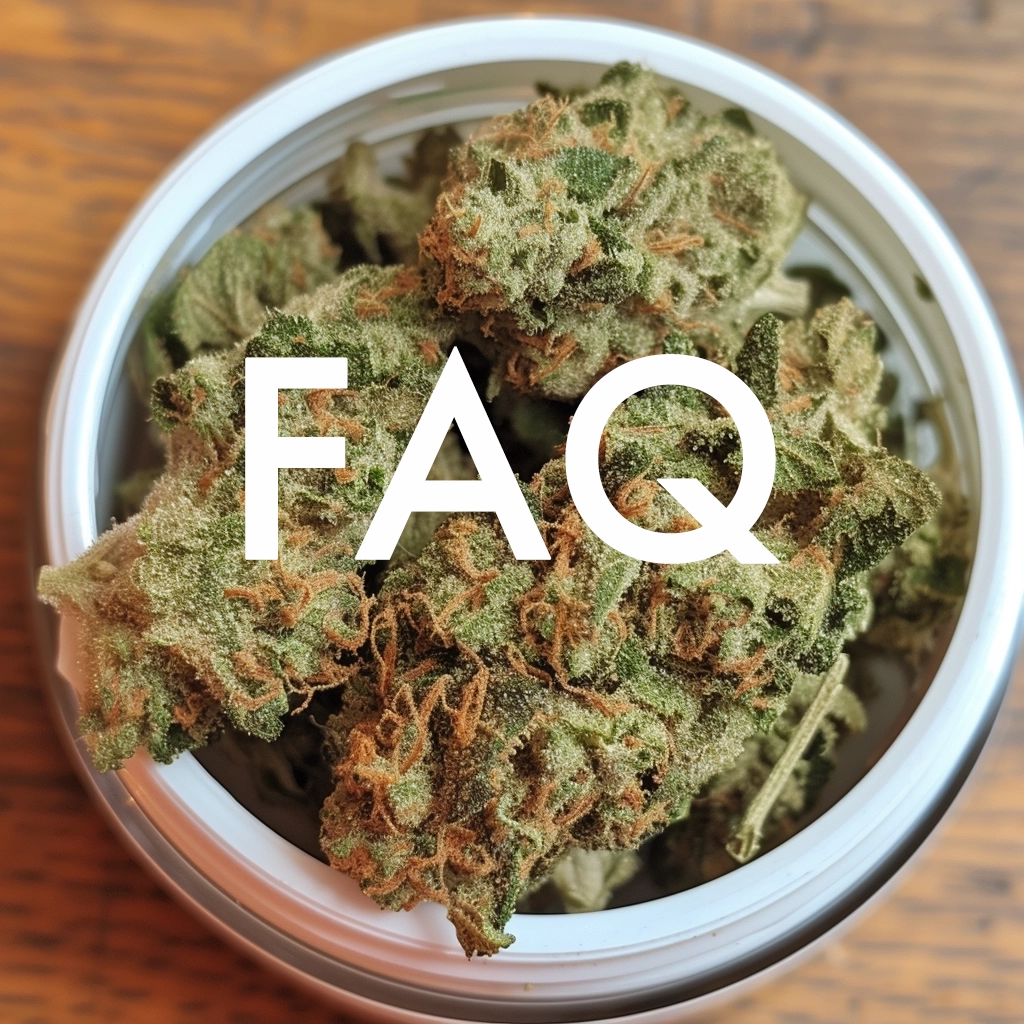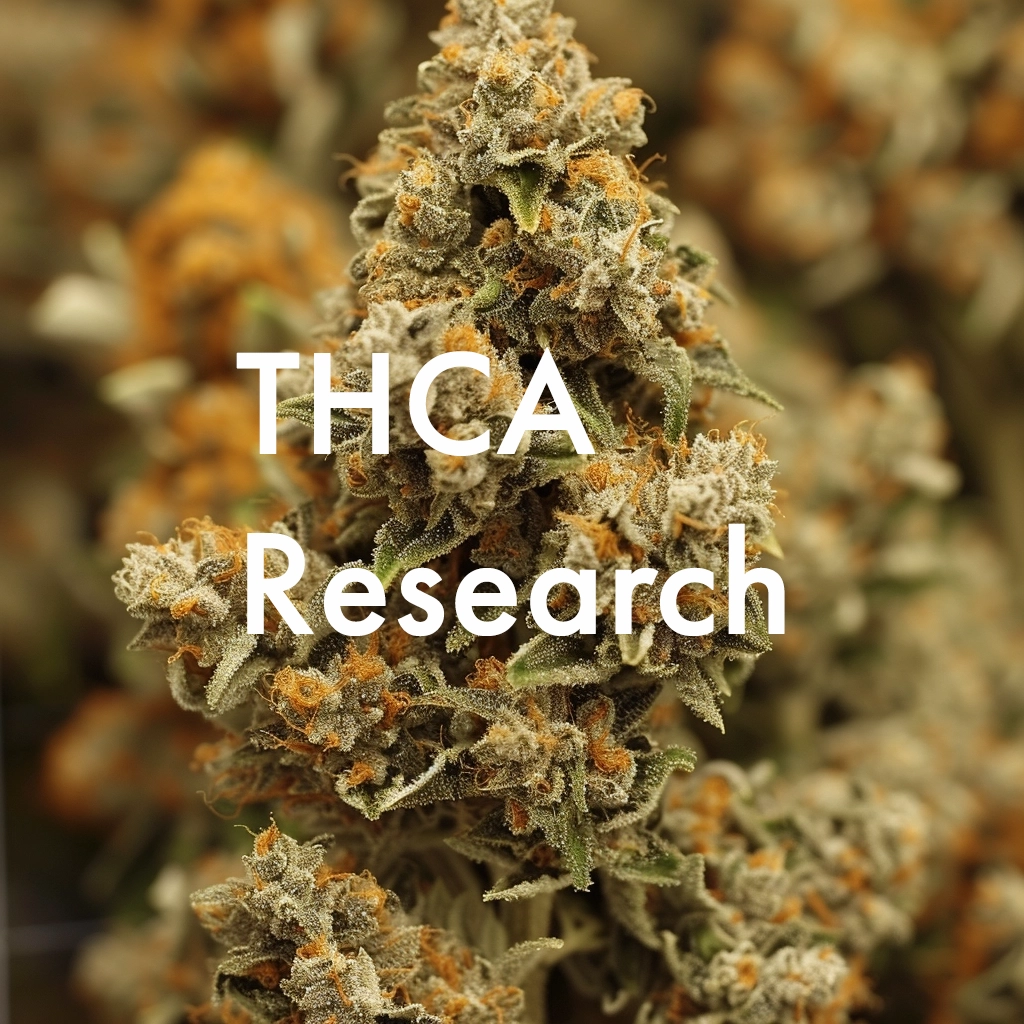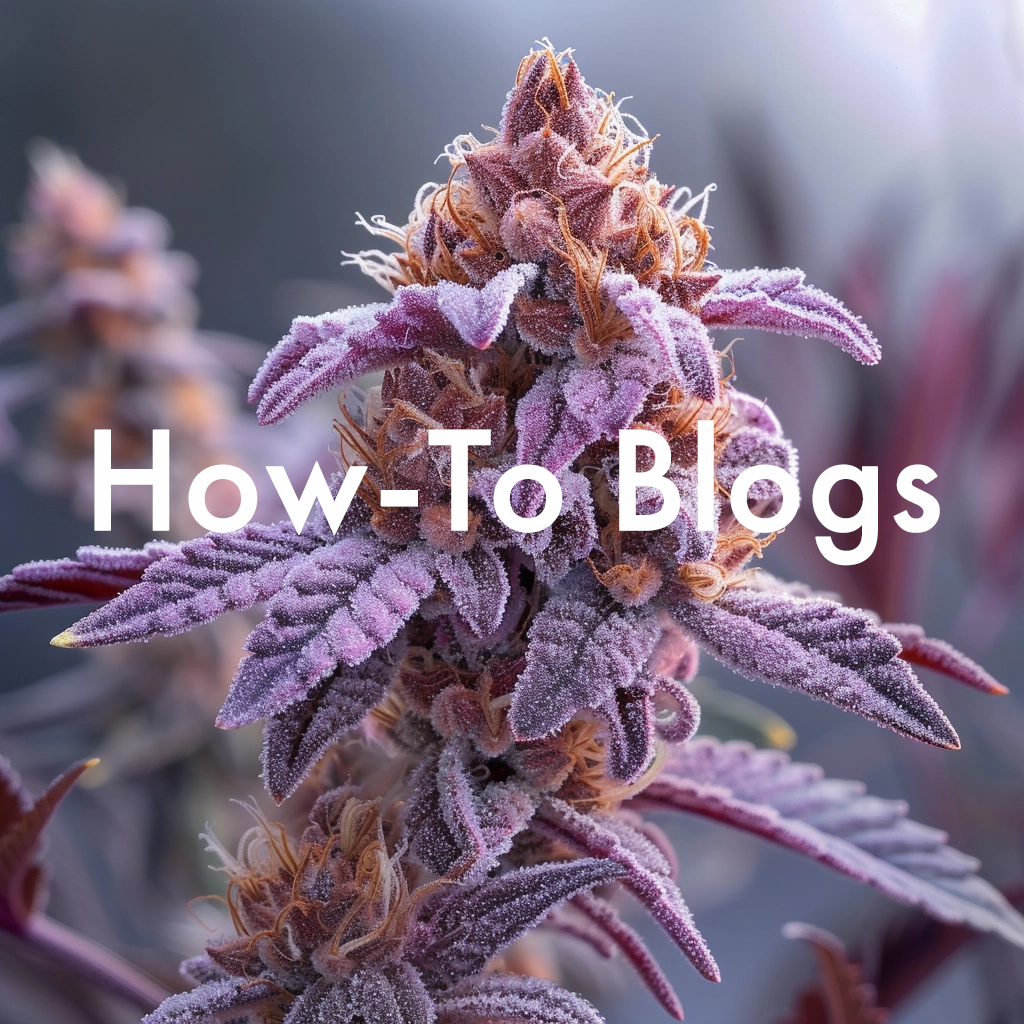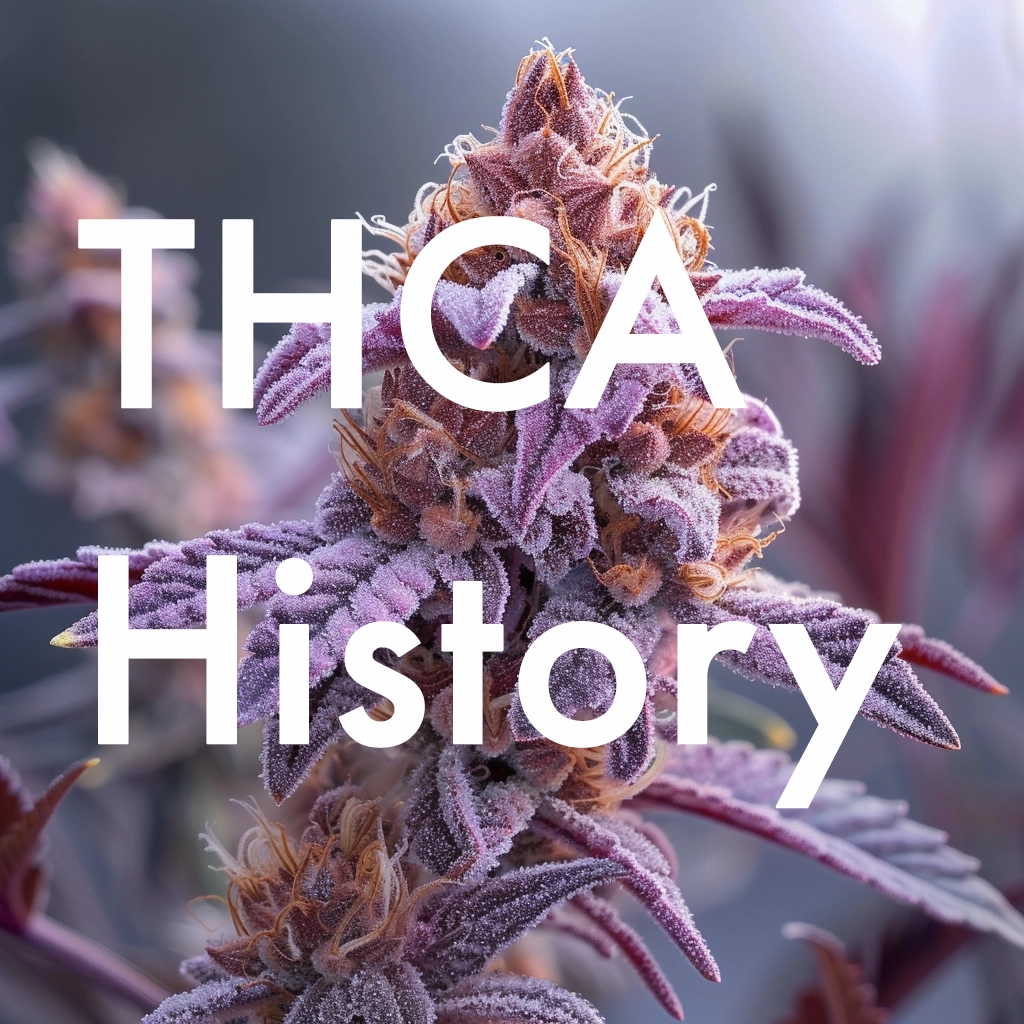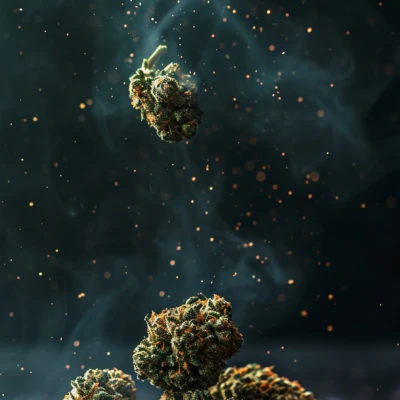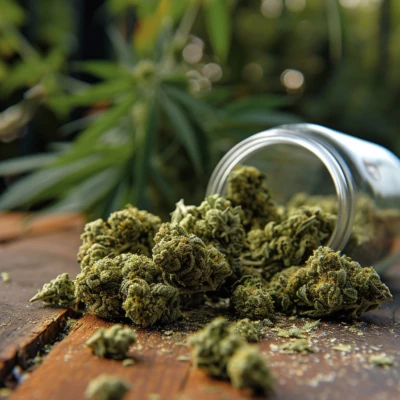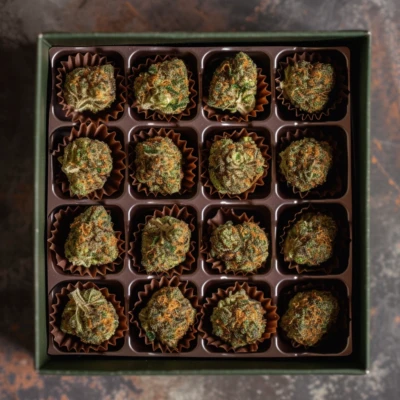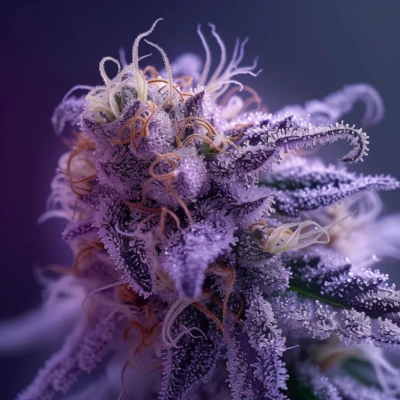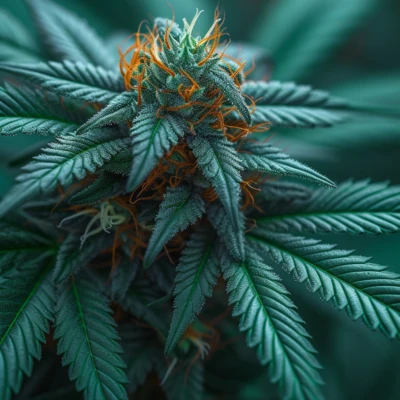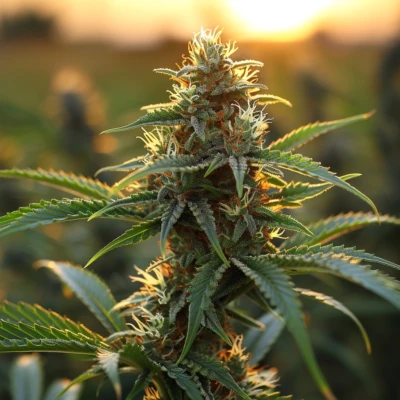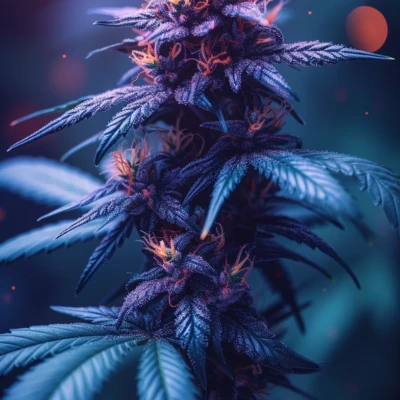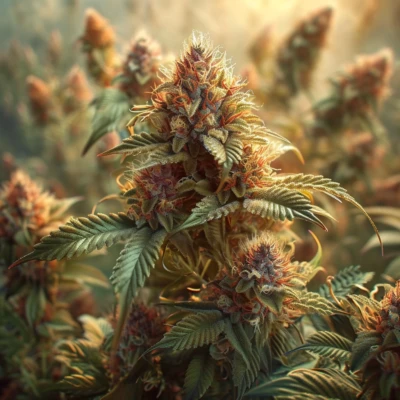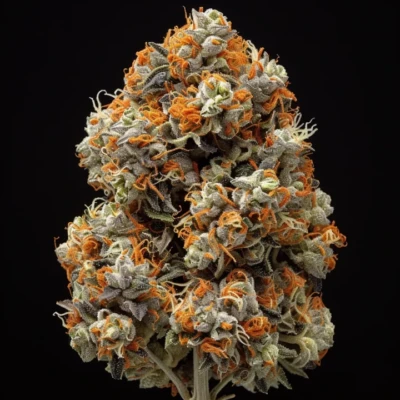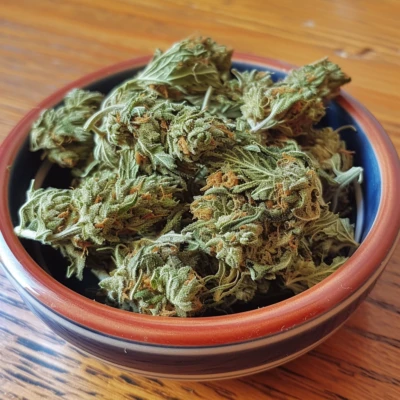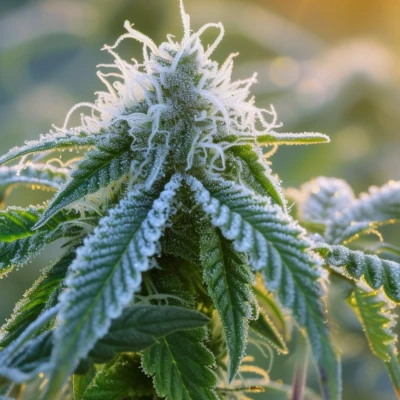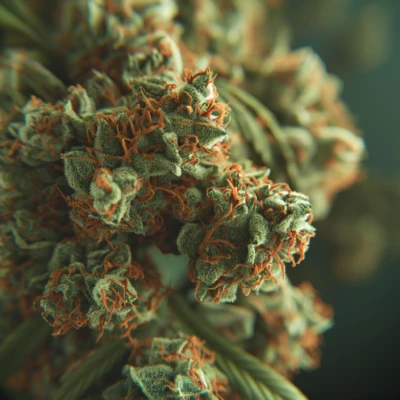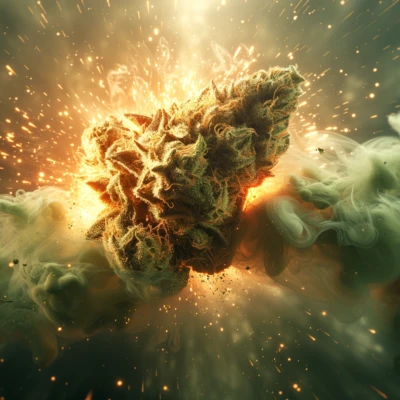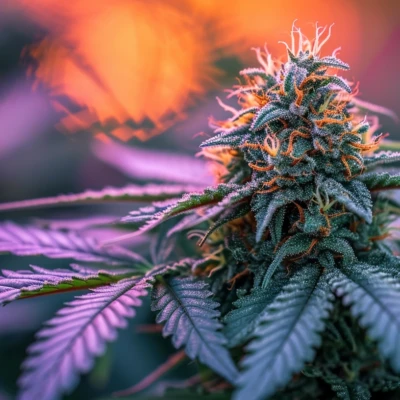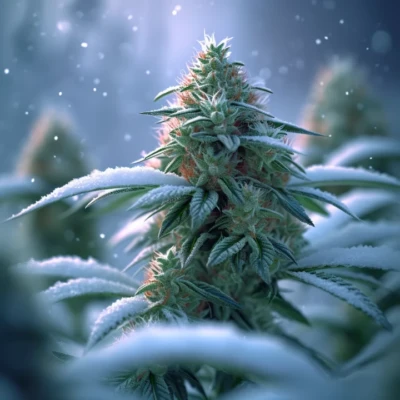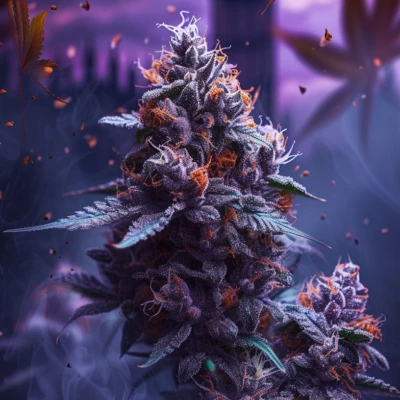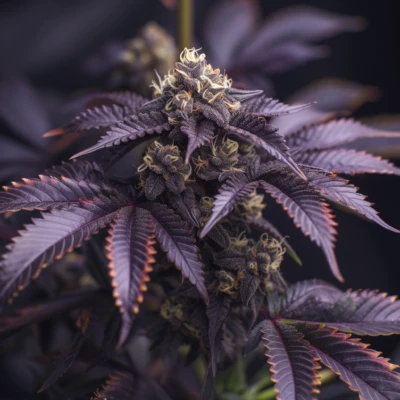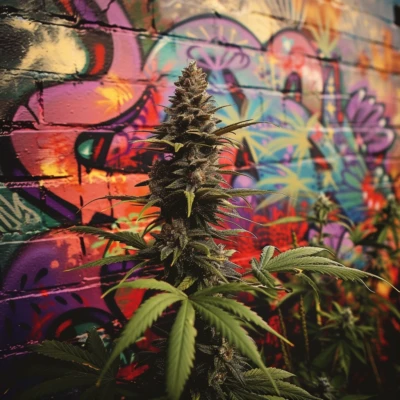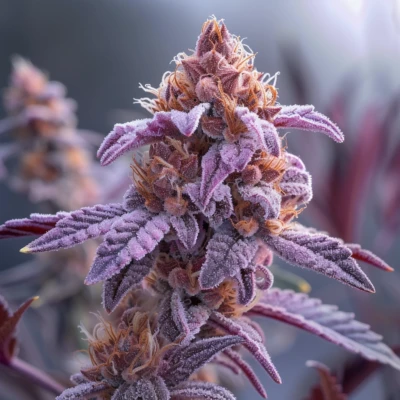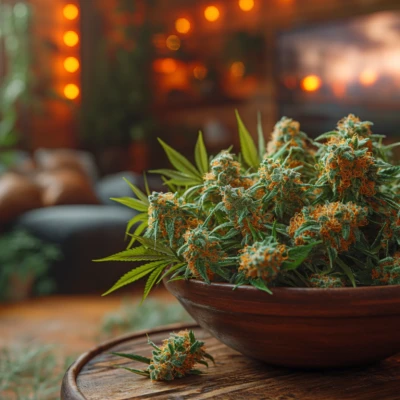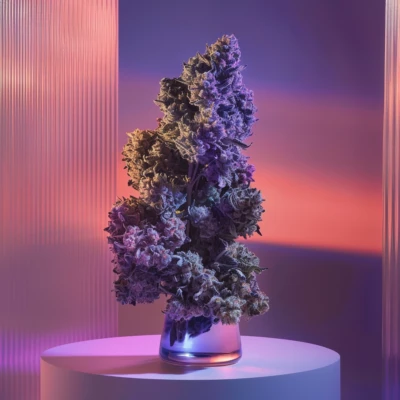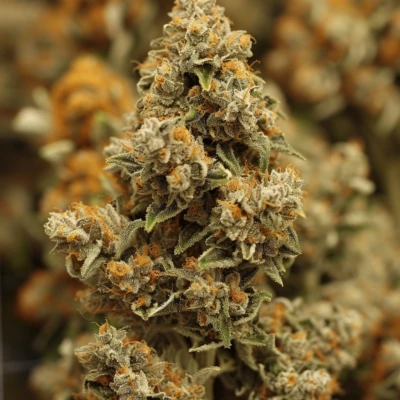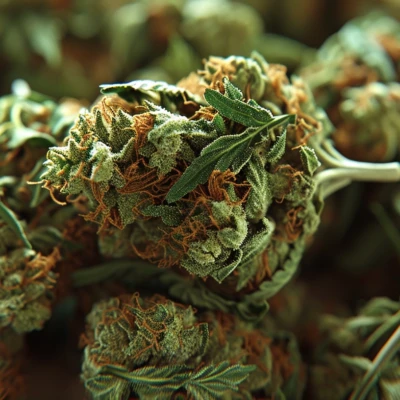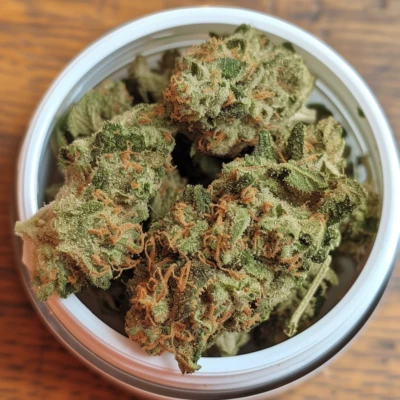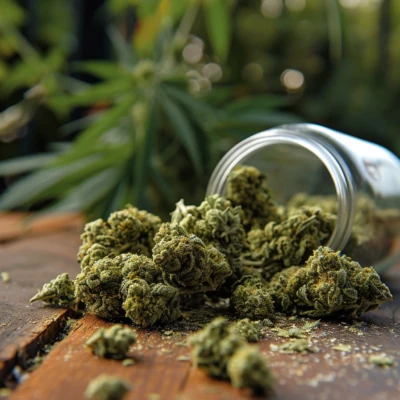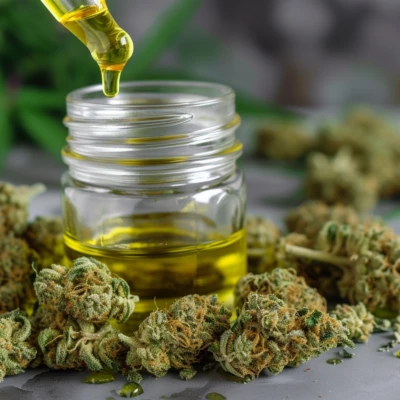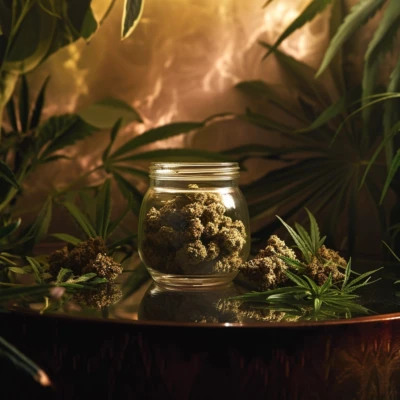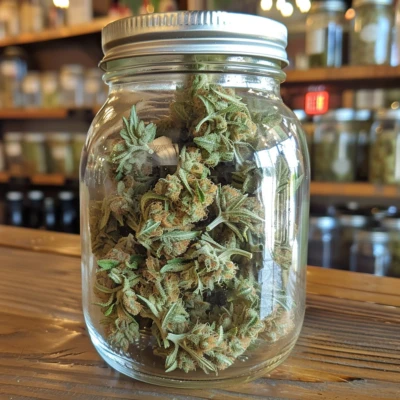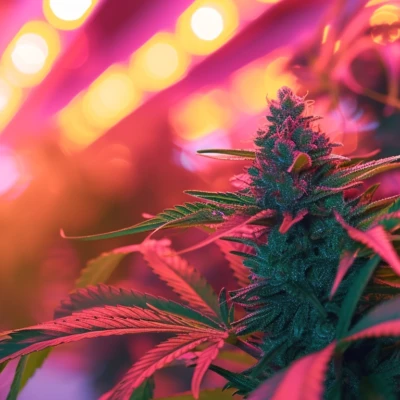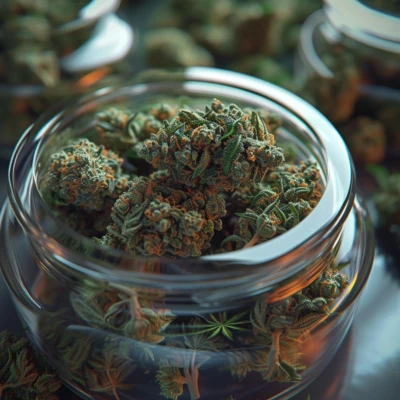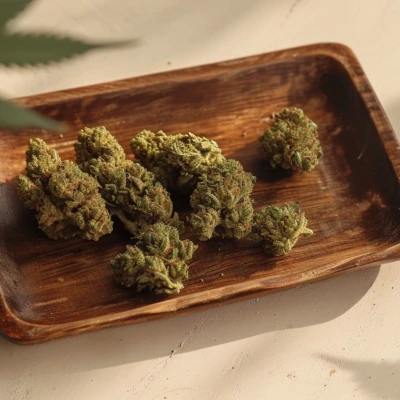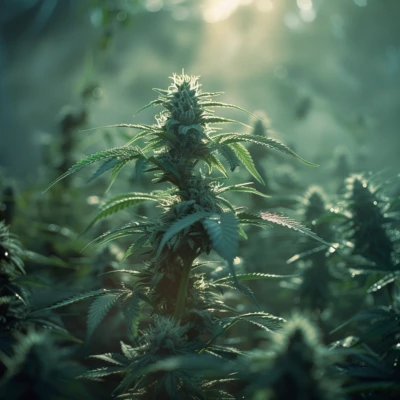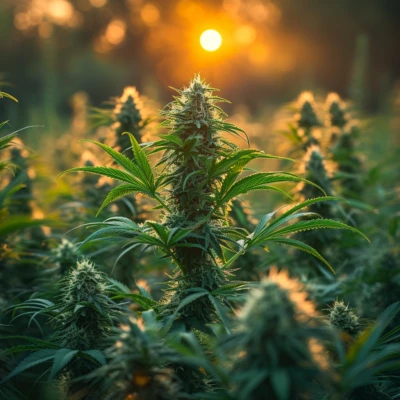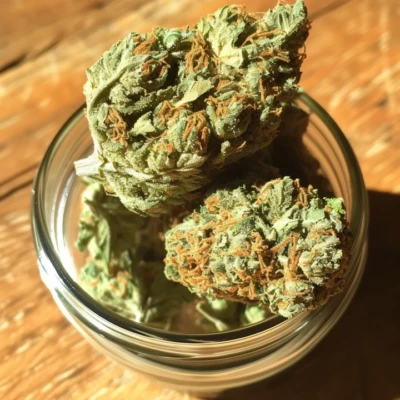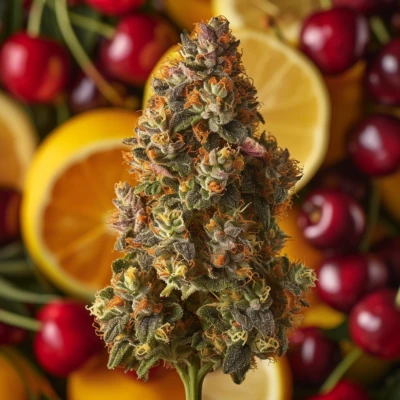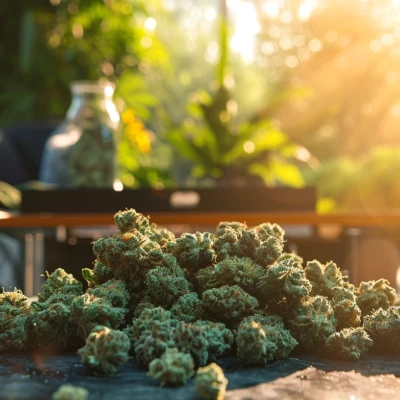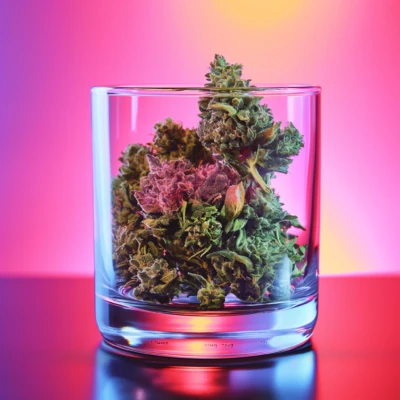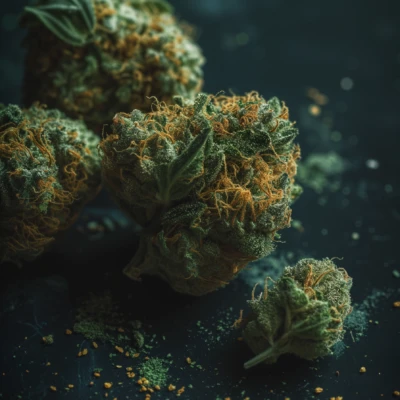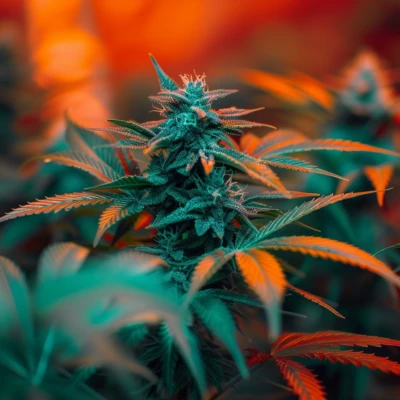THCA VAPES
The Science Behind THCA: How It Works
The Science Behind THCA: How It Works
THCA, or tetrahydrocannabinolic acid, is a fascinating compound found in raw cannabis that has been garnering attention for its potential therapeutic benefits. Understanding the science behind THCA involves exploring its chemical properties, the process of decarboxylation, and how it interacts with the body. This informative article delves into these aspects to provide a comprehensive overview of THCA.
Chemical Properties of THCA
THCA is one of the many cannabinoids present in the cannabis plant. It is the precursor to THC (tetrahydrocannabinol), which is the primary psychoactive component in cannabis. Here are some key chemical properties of THCA:
- Molecular Structure: THCA has the chemical formula C22H30O4. It is a carboxylic acid form of THC, meaning it contains an additional carboxyl group (COOH) that makes it non-psychoactive.
- Solubility: THCA is not water-soluble but is soluble in organic solvents such as ethanol and methanol. This property is essential for its extraction and purification processes.
- Stability: THCA is relatively unstable and can easily convert to THC when exposed to heat, light, or prolonged storage. This conversion is a critical aspect of its behavior and use.
The Process of Decarboxylation
Decarboxylation is a chemical reaction that removes a carboxyl group and releases carbon dioxide (CO2). This process is crucial for converting THCA into THC, which is what gives cannabis its psychoactive properties. Here’s how decarboxylation works:
- Heat Application: When cannabis is heated, such as through smoking, vaping, or cooking, the THCA undergoes decarboxylation. The heat energy breaks the bond in the carboxyl group, releasing CO2 and converting THCA into THC.
THCA→heatTHC+CO2
- Natural Aging: Over time, even without the application of heat, THCA can slowly convert to THC. However, this natural decarboxylation process is much slower and less efficient than applying heat.
- Optimal Conditions: The optimal temperature for decarboxylation ranges between 220°F (104°C) and 240°F (115°C). At these temperatures, THCA converts to THC without degrading other cannabinoids and terpenes that contribute to the plant’s therapeutic effects.
How THCA Interacts with the Body
Unlike THC, THCA does not produce a psychoactive high because it does not effectively bind to CB1 receptors in the brain. However, THCA interacts with the body in several other ways that contribute to its potential therapeutic benefits:
- Anti-Inflammatory Effects: THCA has been shown to have anti-inflammatory properties, making it potentially useful for conditions like arthritis and other inflammatory diseases. It interacts with the body’s endocannabinoid system to help reduce inflammation.
- Neuroprotective Properties: Research suggests that THCA may have neuroprotective effects, helping to protect brain cells and support overall brain health. This could make it beneficial for neurodegenerative diseases such as Alzheimer’s and Parkinson’s disease.
- Anti-Emetic Effects: THCA has been found to help reduce nausea and vomiting, making it potentially useful for patients undergoing chemotherapy or those with chronic gastrointestinal issues.
- Interaction with Other Receptors: While THCA does not bind well to CB1 receptors, it may interact with other receptors in the body, such as the TRPV (transient receptor potential vanilloid) receptors, which are involved in regulating pain and inflammation.
Research and Potential Uses
Although the research on THCA is still in its early stages, preliminary studies and anecdotal evidence suggest a range of potential therapeutic uses. Some areas of interest include:
- Pain Management: THCA’s anti-inflammatory and analgesic properties could make it a viable option for managing chronic pain without the psychoactive effects of THC.
- Appetite Stimulation: Similar to THC, THCA might help stimulate appetite, which can be beneficial for individuals with conditions that cause loss of appetite, such as cancer or HIV/AIDS.
- Anti-Proliferative Effects: Some studies have indicated that THCA may help inhibit the growth of certain cancer cells, although more research is needed to understand its potential fully.
Conclusion
THCA is a non-psychoactive cannabinoid with promising therapeutic properties. Its chemical structure, the process of decarboxylation, and its interactions with the body all contribute to its unique profile. While more research is necessary to fully understand and harness its potential, THCA offers an exciting area of exploration in the field of cannabis-based medicine. Whether used in its raw form or converted to THC, THCA plays a crucial role in the therapeutic applications of cannabis.
The History and Evolution of THCA Vapes
The History and Evolution of THCA Vapes
The story of THCA vapes is intertwined with the broader history of vaping technology and the evolving landscape of cannabis consumption. From its origins in ancient practices to the sophisticated devices we use today, vaping has undergone significant transformations. This article takes a historical perspective on the development of THCA vapes, exploring how they have changed over time and what the future holds for this innovative form of cannabis consumption.
Origin and Development of Vaping Technology
Ancient Beginnings
The concept of inhaling substances for therapeutic and recreational purposes is not new. Ancient civilizations, including the Egyptians, Greeks, and Indians, used various methods to inhale herbs and oils. The earliest form of vaporization can be traced back to ancient Egypt, where people would heat herbs on hot stones to produce vapors for inhalation.
The First Vaporizers
The modern history of vaping began in the 1960s when Herbert A. Gilbert patented the first electronic cigarette. Gilbert’s device, however, never gained commercial traction. It wasn’t until 2003 that Hon Lik, a Chinese pharmacist, developed the first commercially successful e-cigarette. Lik’s invention aimed to provide a safer alternative to smoking, using a battery-powered device to vaporize a nicotine solution.
Evolution to Cannabis Vaping
The success of e-cigarettes paved the way for the development of cannabis vaporizers. Early cannabis vaporizers were bulky and designed for desktop use. The Volcano vaporizer, released in the late 1990s by German company Storz & Bickel, became a hallmark of these early devices. Portable vaporizers emerged in the 2000s, with products like the Pax vaporizer revolutionizing the market by offering discreet and convenient cannabis consumption.
How THCA Vapes Have Changed Over Time
Early Cannabis Vapes
In the early days of cannabis vaping, the focus was primarily on THC and CBD. THCA, the non-psychoactive precursor to THC, was not widely recognized or utilized. Early vaporizers were not optimized for THCA consumption, and most users sought the psychoactive effects of THC.
The Rise of THCA
As scientific understanding of cannabinoids expanded, the potential benefits of THCA began to gain attention. Researchers discovered that THCA possesses anti-inflammatory, neuroprotective, and anti-emetic properties without the psychoactive effects of THC. This led to the development of THCA-specific products, including THCA vapes.
Modern THCA Vapes
Today’s THCA vapes are designed to maximize the therapeutic benefits of THCA while ensuring ease of use and efficiency. Modern devices offer precise temperature control, allowing users to vaporize THCA without converting it to THC through decarboxylation. This precision preserves the non-psychoactive properties of THCA, catering to users seeking therapeutic relief without a high.
Advancements in extraction techniques have also improved the quality and purity of THCA vape oils. CO2 extraction and other solvent-free methods ensure that THCA products are free from contaminants and provide a clean, pure vapor.
Future Trends and Innovations
Enhanced Formulations
The future of THCA vapes lies in enhanced formulations that combine THCA with other beneficial cannabinoids and terpenes. These formulations aim to provide a more comprehensive therapeutic experience, leveraging the entourage effect to enhance the efficacy of cannabis products.
Smart Vaping Devices
The integration of smart technology into vaping devices is an emerging trend. Future THCA vapes may feature Bluetooth connectivity, allowing users to control temperature settings and monitor usage through smartphone apps. These advancements can provide a more personalized vaping experience and help users track their consumption patterns.
Sustainable Practices
As environmental concerns grow, the cannabis industry is moving towards more sustainable practices. This includes developing eco-friendly vape devices and packaging. Biodegradable cartridges, recyclable components, and energy-efficient manufacturing processes are likely to become standard in the production of THCA vapes.
Medical Applications
Ongoing research into the therapeutic benefits of THCA will likely lead to more medical applications for THCA vapes. As clinical evidence builds, THCA vapes could become a mainstream treatment option for conditions such as chronic pain, epilepsy, and neurodegenerative diseases. Medical-grade devices tailored for specific conditions may also emerge, providing patients with targeted and effective treatment options.
Conclusion
The history and evolution of THCA vapes reflect broader trends in both vaping technology and cannabis consumption. From ancient inhalation practices to cutting-edge devices, the journey of THCA vapes showcases innovation and adaptation. As we look to the future, advancements in formulations, technology, sustainability, and medical applications promise to further transform the landscape of THCA vaping. By understanding this history, we can appreciate the progress made and anticipate the exciting developments yet to come in the world of THCA vapes.
Effects of THCA
“THCA is a non-psychoactive cannabinoid with promising therapeutic properties. Its chemical structure, the process of decarboxylation, and its interactions with the body all contribute to its unique profile. While more research is necessary to fully understand and harness its potential, THCA offers an exciting area of exploration in the field of cannabis-based medicine. Whether used in its raw form or converted to THC, THCA plays a crucial role in the therapeutic applications of cannabis.” ~ Nephi Stella
Feelings: Creative Uplifted Energetic Giggly Hunger Stones
Negatives: Dry Mouth Paranoid Dry Eyes Sleep and Calm
Helps with: Stress Anxiety Depression Appetite and Sleep
Research Articles on THCa
- Structure and function of∆ 1-tetrahydrocannabinolic acid
- Tetrahydrocannabinolic acid is a potent PPARγCan You Pass the Acid Test? Critical Review and
- Novel Therapeutic Perspectives of Δ9-Tetrahydrocannabinolic Acid
- Tetrahydrocannabinolic acid A (THCA-A) reduces adiposity and prevents metabolic disease caused by diet-induced obesity
- Taming THC: potential cannabis synergy and phytocannabinoid‐terpenoid entourage effects
THCA Vapes and Social Experiences
THCA Vapes and Social Experiences: A Gentle Journey to Connection
Picture a twilight garden party, the air imbued with the fragrance of blooming jasmine and the soft murmur of laughter. Amidst the glow of fairy lights, a circle of friends passes around a sleek, elegant THCA vape, each puff a whisper of tranquility and camaraderie. THCA vapes, with their gentle touch and non-psychoactive embrace, offer a unique avenue for enhancing social interactions, weaving threads of connection without the high. Let us embark on a journey through the enchanting world of THCA vapes and their role in crafting memorable social experiences.
Using THCA Vapes in Social Settings
Imagine hosting a soirée where the ambiance is set not just by the twinkling candles and melodic tunes, but also by the soothing essence of THCA vapes. These delicate devices fit seamlessly into any social gathering, from intimate dinners to lively garden parties, offering a shared experience that is both refined and relaxing.
A Symphony of Serenity
As the evening unfolds, the act of passing around a THCA vape becomes a ritual of shared serenity. Each inhale brings a sense of calm, melting away the day’s stresses and fostering an atmosphere of openness and ease. Unlike THC, which can sometimes induce a euphoric disorientation, THCA’s non-psychoactive nature ensures that conversations flow freely, unclouded and clear.
Crafting a Comfortable Space
For those new to the world of cannabis, the idea of partaking in a social setting can be daunting. THCA vapes offer a gentle introduction, their effects akin to a soft breeze rather than a whirlwind. Hosts can create a welcoming environment where guests feel comfortable exploring the benefits of cannabis without the fear of an overwhelming high.
Enhancing Social Interactions Without the High
The allure of THCA vapes lies in their ability to enhance social interactions subtly and beautifully, akin to the soft notes of a harp in a symphony.
Encouraging Connection
THCA fosters a state of relaxed alertness, making it easier for individuals to connect and engage. The calming effects help to reduce social anxiety, allowing for more genuine interactions and deeper conversations. Whether it’s a heart-to-heart under the stars or a light-hearted chat over cocktails, THCA vapes add a layer of ease and intimacy.
Maintaining Clarity
One of the most significant advantages of THCA vapes in social settings is the preservation of mental clarity. Guests can enjoy the soothing effects without the risk of impairment, ensuring that everyone remains present and fully engaged in the moment. This clarity is particularly beneficial in settings where important discussions or decisions are made, ensuring that minds remain sharp and focused.
A Shared Experience
The act of sharing a THCA vape creates a bond among participants, a communal experience that fosters unity and understanding. The gentle effects can make the evening feel more cohesive, with each participant contributing to the tapestry of the gathering.
Tips for Sharing THCA Vapes with Friends
To enhance the enchantment of your social gatherings, consider these tips for sharing THCA vapes with friends:
Educate and Inform
Before the festivities begin, take a moment to educate your guests about THCA vapes. Explain the difference between THCA and THC, emphasizing the non-psychoactive nature of THCA. Providing this information helps to alleviate any apprehensions and sets the stage for a relaxed experience.
Create a Ritual
Introduce the THCA vape as part of a delightful ritual. Perhaps it is passed around with a toast, or each puff is accompanied by a shared intention or thought. This ritualistic approach adds an element of mindfulness and significance to the experience.
Ensure Comfort and Consent
Ensure that all guests feel comfortable and have given their consent to participate. Respect individual preferences and provide alternative options for those who might not wish to partake. Comfort and consent are paramount in creating an inclusive and enjoyable atmosphere.
Pair with Complementary Elements
Enhance the experience by pairing the THCA vape with complementary elements. Herbal teas, soft music, and cozy seating arrangements can amplify the relaxing effects, creating a sensory symphony that delights all participants.
Encourage Mindful Consumption
Guide your guests in practicing mindful consumption. Encourage them to take slow, deliberate inhales, savoring the flavor and effects. This mindful approach not only enhances the experience but also ensures that the benefits of THCA are fully appreciated.
Final Musings
THCA vapes, with their delicate embrace and non-psychoactive charm, offer a sublime way to enhance social experiences. They weave a tapestry of connection, clarity, and calm, transforming ordinary gatherings into enchanting events. By incorporating THCA vapes into social settings, fostering genuine interactions, and sharing with mindful intention, you create moments that linger like the fragrance of night-blooming flowers, subtle yet unforgettable. So, gather your friends, light the fairy lights, and let the gentle whispers of THCA guide you on a journey of serene connection.
THCA Vapes in Senior Wellness
THCA Vapes in Senior Wellness
As we age, managing health and wellness becomes increasingly important. Many seniors are turning to THCA vapes as a natural way to support their health. THCA, or tetrahydrocannabinolic acid, is a non-psychoactive compound found in cannabis that offers various benefits without the high associated with THC. This article explores how THCA vapes can benefit seniors, highlights senior-friendly THCA vape products, and shares testimonials from older adults who have experienced positive results.
Benefits of THCA for Aging-Related Issues
THCA is gaining popularity among seniors for its potential to help with several aging-related health issues. Here are some key benefits:
Pain Relief
Many seniors suffer from chronic pain due to conditions like arthritis or neuropathy. THCA has anti-inflammatory properties that can help reduce pain and inflammation, providing natural relief without the side effects of traditional painkillers.
Improved Sleep
Sleep issues are common among older adults. THCA can promote relaxation and improve sleep quality, helping seniors get the restful sleep they need.
Neuroprotection
THCA may offer neuroprotective benefits, which means it could help protect brain cells and support cognitive health. This is particularly important for seniors concerned about memory loss or neurodegenerative diseases like Alzheimer’s.
Appetite Stimulation
Loss of appetite can be a significant issue for seniors, leading to malnutrition and weight loss. THCA can help stimulate appetite, encouraging better nutrition and overall health.
Senior-Friendly THCA Vape Products
When it comes to choosing THCA vape products, seniors should look for options that are easy to use, effective, and safe. Here are some senior-friendly THCA vape products:
Pre-Filled Vape Pens
Pre-filled vape pens are convenient and straightforward to use. They come ready to use right out of the box, requiring no setup or maintenance. Brands like Bloom Farms and Dosist offer high-quality pre-filled THCA vape pens.
Disposable Vapes
Disposable vapes are another excellent option for seniors. They are pre-charged and pre-filled, so there’s no need to worry about charging or refilling. After use, simply dispose of the pen. Brands like Select Oil and Heavy Hitters offer reliable disposable THCA vapes.
Adjustable Vape Pens
For those who want a bit more control over their vaping experience, adjustable vape pens allow users to set the temperature to their preference. This can help maximize the benefits of THCA. Pax Era and Stiiizy are popular brands that offer adjustable vape pens with easy-to-use settings.
Testimonials from Older Adults Using THCA Vapes
Hearing from other seniors who have benefited from THCA vapes can provide valuable insights and reassurance. Here are a few testimonials:
Margaret’s Story
Margaret, a 72-year-old retiree, struggled with severe arthritis pain for years. Traditional pain medications provided little relief and came with unwanted side effects. After trying a THCA vape, she noticed a significant reduction in her pain levels. “I was skeptical at first, but THCA vapes have made a big difference in my daily life. I can move more easily and enjoy my activities without constant pain,” she says.
George’s Experience
George, a 68-year-old former teacher, had trouble sleeping through the night. He tried various remedies, but nothing seemed to work until he discovered THCA vapes. “Using a THCA vape before bed has helped me sleep more soundly. I wake up feeling rested and ready to take on the day,” George explains.
Helen’s Journey
Helen, a 75-year-old grandmother, was losing weight due to a lack of appetite. Her doctor recommended trying THCA to stimulate her appetite. “After using THCA vapes, I’ve started to eat more and feel stronger. It’s been a wonderful change,” Helen shares.
Final Thoughts
THCA vapes offer a promising natural alternative for seniors looking to manage aging-related health issues like chronic pain, sleep problems, cognitive decline, and loss of appetite. With easy-to-use products and positive testimonials from older adults, THCA vapes are becoming an increasingly popular choice for senior wellness. If you or a loved one are considering THCA vapes, consult with a healthcare provider to ensure they fit into your wellness routine safely and effectively.
Common Questions about THCa (FAQ)
What is THCa vs THC?
How long does THCa last in your system?
How is THCA flower made?
Which is stronger, THCa or THC?
What does THCa do to the brain?
What is a high THCa percentage?
Does THCa turn into Delta 9 when smoked?
How is THCa legal?
What are the effects of smoking THCa?
Is THCa safe for driving?
Does thca get you high when smoked?
How do you smoke THCa flower?
The Role of Terpenes in THCA Vapes
The Role of Terpenes in THCA Vapes
In the vast and vibrant world of cannabis, there’s a lot more going on than just cannabinoids like THC and THCA. A critical yet often underappreciated component of the cannabis experience is terpenes. These aromatic compounds do more than just give cannabis its distinctive smell—they play a vital role in the overall effects and benefits of cannabis products, including THCA vapes. Let’s dive into the world of terpenes and explore their importance, how they enhance the vaping experience, and some popular terpene profiles found in THCA vapes.
Explanation of Terpenes and Their Benefits
Terpenes are organic compounds found in many plants, responsible for their aroma and flavor. In cannabis, terpenes are abundant and contribute significantly to the plant’s unique scent profile. Beyond their olfactory contributions, terpenes also interact with cannabinoids and the human body to produce a range of therapeutic effects.
Key Benefits of Terpenes
- Aromatherapy: Terpenes are widely used in aromatherapy for their potential to improve mood, reduce stress, and promote relaxation. The pleasant scents of terpenes can enhance mental well-being and contribute to a more enjoyable cannabis experience.
- Entourage Effect: Terpenes work synergistically with cannabinoids in a phenomenon known as the entourage effect. This means that the presence of terpenes can amplify the therapeutic effects of cannabinoids like THCA, providing a more comprehensive and effective experience.
- Therapeutic Properties: Individual terpenes have unique properties that can contribute to their health benefits. For example, some terpenes have anti-inflammatory, anti-anxiety, and pain-relieving properties, making them valuable for medicinal cannabis users.
How Terpenes Enhance the Experience
Terpenes play a multifaceted role in enhancing the cannabis vaping experience. Here’s how they contribute to a more satisfying and effective session:
Flavor and Aroma
Terpenes are responsible for the wide range of flavors and aromas found in cannabis. When vaping THCA, the presence of terpenes can make each puff a sensory delight. From the citrusy zing of limonene to the earthy richness of myrcene, terpenes create a nuanced flavor profile that enhances the overall enjoyment of vaping.
Modulating Effects
Different terpenes can influence the effects of THCA vapes. For instance, a THCA vape high in linalool might promote relaxation and stress relief, making it ideal for evening use. On the other hand, a vape with a high limonene content might provide an uplifting and energizing experience, perfect for daytime use. By selecting vapes with specific terpene profiles, users can tailor their experience to match their needs and preferences.
Therapeutic Enhancements
The therapeutic benefits of terpenes complement the non-psychoactive properties of THCA. For example, beta-caryophyllene, known for its anti-inflammatory effects, can enhance the pain-relieving properties of THCA. This combination can provide more effective relief for conditions like arthritis or chronic pain.
Popular Terpene Profiles in THCA Vapes
Understanding the terpene profiles in THCA vapes can help users choose products that best suit their desired effects and flavor preferences. Here are some popular terpenes found in THCA vapes and their associated benefits:
Limonene
- Aroma and Flavor: Citrus, lemon, and orange.
- Effects: Uplifting and energizing.
- Benefits: Known for its mood-enhancing properties, limonene is great for combating stress and anxiety. It can also have anti-inflammatory and antioxidant effects.
Myrcene
- Aroma and Flavor: Earthy, musky, with hints of cloves.
- Effects: Relaxing and sedative.
- Benefits: Myrcene is often associated with muscle relaxation and pain relief. It’s ideal for evening use or for those seeking relief from insomnia.
Linalool
- Aroma and Flavor: Floral, lavender.
- Effects: Calming and relaxing.
- Benefits: Linalool is widely recognized for its anti-anxiety and sedative properties. It can also help with pain and inflammation, making it a versatile terpene for medicinal use.
Beta-Caryophyllene
- Aroma and Flavor: Spicy, peppery, woody.
- Effects: Anti-inflammatory and analgesic.
- Benefits: Beta-caryophyllene is unique because it can bind directly to CB2 receptors in the endocannabinoid system, providing significant anti-inflammatory and pain-relieving effects without the psychoactivity.
Pinene
- Aroma and Flavor: Pine, fresh, woody.
- Effects: Alertness and memory retention.
- Benefits: Pinene is known for its ability to promote alertness and counteract some of the memory-impairing effects of THC. It also has anti-inflammatory and bronchodilator properties.
Final Thoughts
Terpenes are essential components of THCA vapes, significantly enhancing both the experience and therapeutic potential of these products. By understanding the roles of different terpenes, users can make informed choices that align with their desired effects and flavor preferences. Whether you’re seeking relaxation, pain relief, or an uplifting boost, the rich world of terpenes offers something for every cannabis enthusiast. So next time you pick up a THCA vape, take a moment to appreciate the complex, aromatic symphony of terpenes that make your experience truly unique.
Legal Considerations for THCA Vapes: An Analytical Perspective
Legal Considerations for THCA Vapes: An Analytical Perspective
As the popularity of THCA vapes continues to rise, it is crucial to understand the complex legal landscape surrounding their use. THCA (tetrahydrocannabinolic acid) is a non-psychoactive cannabinoid found in raw cannabis that offers potential therapeutic benefits without the high associated with THC. However, navigating the legalities of THCA vapes involves considering federal and state laws, understanding the regulations for traveling with THCA vapes, and knowing how to purchase them legally. This analytical perspective aims to clarify these aspects.
Federal and State Laws
Federal Laws
At the federal level, cannabis remains classified as a Schedule I controlled substance under the Controlled Substances Act (CSA). This classification includes all forms of cannabis, regardless of THC content. However, the 2018 Farm Bill legalized the cultivation and sale of hemp, defined as cannabis with less than 0.3% THC. This distinction is crucial for THCA products derived from hemp, as they are technically legal under federal law.
However, ambiguity arises because THCA can convert to THC when heated, a process known as decarboxylation. This potential for conversion means that THCA products, including vapes, may fall into a legal gray area, particularly if the conversion results in a THC concentration exceeding the federal limit of 0.3%.
State Laws
State laws on cannabis vary widely and can significantly impact the legality of THCA vapes. States generally fall into three categories regarding cannabis laws:
- Fully Legal States: These states have legalized both medical and recreational cannabis. THCA vapes are legal to purchase, possess, and use in these states, provided they adhere to state-specific regulations. Examples include California, Colorado, and Oregon.
- Medical-Only States: In these states, only medical cannabis is legal. THCA vapes may be accessible to patients with qualifying conditions and a valid medical cannabis card. Examples include Florida and New York.
- Prohibited States: These states have not legalized cannabis in any form. Possessing or using THCA vapes could result in legal penalties. Examples include Idaho and South Dakota.
Given these variations, it is essential to understand the specific cannabis laws in your state to ensure compliance.
Traveling with THCA Vapes
Traveling with THCA vapes introduces additional legal considerations, particularly when crossing state lines or international borders.
Domestic Travel
When traveling within the United States, the legality of THCA vapes depends on both the departure and destination states. For example, traveling from a fully legal state to another fully legal state generally poses fewer risks. However, traveling to or through states where cannabis is illegal can result in legal consequences.
The Transportation Security Administration (TSA) focuses on security threats and is not specifically looking for cannabis products. However, if TSA agents discover cannabis, including THCA vapes, they must refer the matter to local law enforcement. Therefore, it is advisable to avoid traveling with THCA vapes through states with strict cannabis laws.
International Travel
International travel with THCA vapes is even more complex and risky. Many countries have stringent laws against cannabis, including non-psychoactive cannabinoids like THCA. Possessing THCA vapes in such countries can lead to severe legal penalties, including imprisonment.
Before traveling internationally, research the specific cannabis laws of your destination country and consider leaving your THCA vapes at home to avoid potential legal issues.
Buying THCA Vapes Legally
To purchase THCA vapes legally, it is crucial to follow these guidelines:
Know Your State’s Laws
Understanding your state’s cannabis laws is the first step in buying THCA vapes legally. Ensure that the purchase, possession, and use of THCA products are legal in your state, and be aware of any specific regulations that may apply.
Purchase from Licensed Dispensaries
In states where cannabis is legal, buy THCA vapes from licensed dispensaries. These establishments comply with state regulations and offer products that have been tested for safety and quality. Avoid purchasing from unlicensed sources, as these products may not meet legal standards and could pose health risks.
Verify Product Information
Ensure that the THCA vape product you are buying is derived from hemp and contains less than 0.3% THC. Reputable dispensaries provide lab results that verify the cannabinoid content and confirm the product’s compliance with federal and state laws.
Conclusion
Navigating the legal considerations for THCA vapes requires a thorough understanding of federal and state laws, careful planning when traveling, and diligent purchasing practices. While the legal landscape for THCA is evolving, staying informed and compliant with current regulations is essential to enjoy the benefits of THCA vapes legally and safely. By adhering to these guidelines, consumers can make informed decisions and avoid potential legal pitfalls.
THCa Photos
THCA Vapes and Sleep Health: A Technical Analysis
THCA Vapes and Sleep Health: A Technical Analysis
Sleep is a crucial component of overall health, impacting physical well-being, cognitive function, and emotional balance. For individuals struggling with sleep disorders or poor sleep quality, finding effective and safe solutions is paramount. Tetrahydrocannabinolic acid (THCA), a non-psychoactive cannabinoid found in raw cannabis, has garnered attention for its potential to improve sleep health. This technical analysis explores how THCA vapes can enhance sleep quality, backed by user testimonials and expert opinions, and compares THCA vapes with other sleep aids.
How THCA Can Improve Sleep Quality
Mechanisms of Action
THCA interacts with the endocannabinoid system (ECS), a complex network of receptors and signaling molecules that regulate various physiological processes, including sleep. Here’s a detailed look at how THCA can enhance sleep quality:
- Anti-Inflammatory Properties: Inflammation can disrupt sleep by causing pain and discomfort. THCA’s anti-inflammatory effects, mediated through the inhibition of pro-inflammatory cytokines and modulation of the cyclooxygenase (COX) enzymes, can reduce inflammation and pain, facilitating better sleep.
- Neuroprotective Effects: THCA exhibits neuroprotective properties by reducing oxidative stress and inflammation in the brain. These effects can promote overall brain health and improve sleep quality, particularly in individuals with neurodegenerative disorders.
- Anxiolytic Effects: Anxiety is a common cause of sleep disturbances. THCA has shown potential anxiolytic effects by interacting with serotonin receptors, specifically the 5-HT1A receptor. By reducing anxiety, THCA can help individuals achieve a more restful and uninterrupted sleep.
- Regulation of Sleep-Wake Cycles: The ECS plays a crucial role in regulating the sleep-wake cycle. THCA can influence the ECS to promote a balance between wakefulness and sleep, improving sleep onset and duration.
User Testimonials and Expert Opinions
User Testimonials
- Margaret, 62: “I’ve struggled with arthritis pain for years, which made it hard to sleep through the night. After trying THCA vapes, I noticed a significant reduction in pain and inflammation. I can now sleep for longer stretches without waking up in discomfort.”
- James, 45: “Anxiety often kept me up at night, leading to poor sleep quality and daytime fatigue. Using a THCA vape before bed has helped calm my mind and reduce anxiety, making it easier to fall asleep and stay asleep.”
- Laura, 52: “I was skeptical at first, but THCA vapes have made a huge difference in my sleep. I feel more rested and alert during the day, and the best part is that it doesn’t make me feel high or groggy.”
Expert Opinions
- Dr. Emily Johnson, Sleep Medicine Specialist: “THCA shows promise as a natural sleep aid due to its anti-inflammatory and anxiolytic properties. While more clinical research is needed to fully understand its efficacy and safety, preliminary findings and anecdotal evidence suggest it can be a valuable tool for improving sleep quality, especially for individuals with chronic pain or anxiety.”
- Dr. Robert Lee, Neurologist: “The neuroprotective effects of THCA are particularly interesting. By reducing oxidative stress and inflammation in the brain, THCA may support better sleep health in patients with neurodegenerative conditions. It’s a non-psychoactive option that offers therapeutic benefits without the side effects associated with traditional sleep medications.”
Comparing THCA Vapes with Other Sleep Aids
Prescription Sleep Medications
Effectiveness: Prescription sleep medications, such as benzodiazepines and non-benzodiazepine hypnotics (e.g., zolpidem), are effective for short-term management of insomnia. However, they can lead to dependency, tolerance, and withdrawal symptoms.
Side Effects: Common side effects include daytime drowsiness, dizziness, and cognitive impairment. Long-term use can also increase the risk of falls and fractures in older adults.
Comparison with THCA: THCA vapes offer a non-psychoactive alternative with fewer side effects. They are less likely to cause dependency and can be used long-term without the risk of withdrawal symptoms. However, more research is needed to establish their long-term efficacy and safety.
Over-the-Counter (OTC) Sleep Aids
Effectiveness: OTC sleep aids, such as diphenhydramine and doxylamine, are antihistamines that induce drowsiness. They are effective for occasional use but may not be suitable for chronic insomnia.
Side Effects: Side effects include dry mouth, urinary retention, and next-day drowsiness. They can also cause cognitive impairment, particularly in older adults.
Comparison with THCA: THCA vapes provide a natural alternative without the anticholinergic side effects of antihistamines. They address underlying causes of sleep disturbances, such as inflammation and anxiety, rather than merely inducing drowsiness.
Melatonin
Effectiveness: Melatonin is a hormone that regulates the sleep-wake cycle. It is effective for treating circadian rhythm disorders and improving sleep onset.
Side Effects: Melatonin is generally well-tolerated, with few side effects. However, high doses can cause headaches, dizziness, and daytime sleepiness.
Comparison with THCA: Both melatonin and THCA can regulate the sleep-wake cycle, but THCA offers additional benefits, such as reducing inflammation and anxiety. Combining THCA with melatonin may provide synergistic effects for improved sleep quality.
Conclusion
THCA vapes hold promise as a natural and effective sleep aid, offering benefits such as reducing inflammation, anxiety, and neuroprotective effects. User testimonials and expert opinions support their potential for improving sleep quality, particularly for individuals with chronic pain or anxiety. When compared to traditional sleep aids, THCA vapes present fewer side effects and a lower risk of dependency. However, further research is necessary to fully understand their long-term efficacy and safety. As interest in THCA continues to grow, it is essential to consider these factors critically and stay informed about ongoing developments in this field.
Links to websites that have more info on THCa.
What people are saying about THCa.
THCa Review by James
James, age 34: “I started using THCA for its potential anti-inflammatory benefits. I’ve noticed a significant decrease in my joint pain, especially in the mornings. It doesn’t have the psychoactive effects of THC, which is great because I can use it during my workday without any issues.”
Marketing Specialist
THCa Review by Samantha
Samantha, age 28: “I’ve been experimenting with THCA in my post-workout routine. It’s been great for muscle recovery and doesn’t make me feel high, which I really appreciate. I blend it into my smoothies and have found it quite effective.”
SAHM
THCa Review by Eduardo
Eduardo, age 45: “As someone who’s been looking into alternative therapies for my chronic pain, THCA has been a revelation. It helps manage my pain without any psychoactive effects. It’s been a part of my daily regimen for months now.”
Electrician
THCa Review by Natalie
Natalie, age 52: “I use THCA to help with my arthritis. It’s one of the few things that helps without making me feel out of it. I apply a topical that includes THCA, and it eases the stiffness and pain quite effectively.”
Secretary

